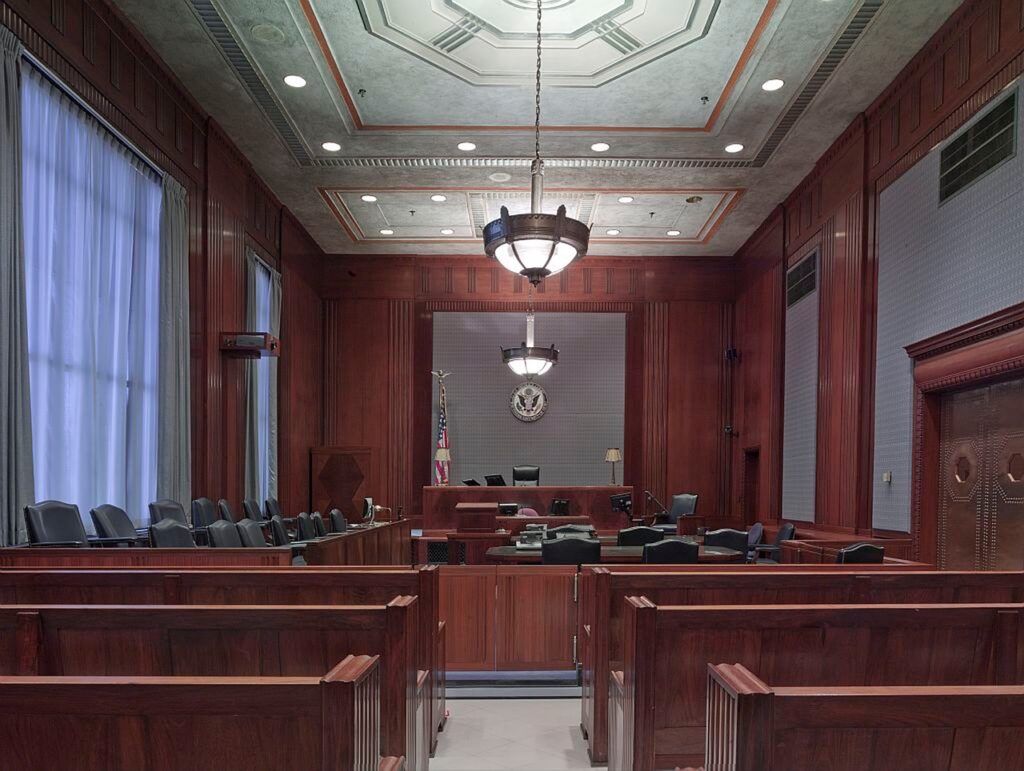
- April 1, 2025
- Sean Gellis
- 0
Welcome to FloridaProcurements.com (FlaProc), your authoritative resource for navigating Florida’s government contracting landscape, with particular focus on transportation and technology opportunities. FlaProc provides free, expert guidance to help companies identify and secure state contracting opportunities throughout Florida.
This resource is maintained by Attorney Sean Gellis of Gellis Law, PLLC, one of less than 75 attorneys Board Certified in State and Federal Government and Administrative Practice by The Florida Bar. Mr. Gellis brings unique insight to government contracting, having served as the Chief of Staff of the Florida Department of Management Services (DMS), General Counsel of the Florida Department of Transportation (FDOT), and Deputy General Counsel of the Florida Office of Insurance Regulation – positions that provided direct oversight of technology initiatives and issues of statewide importance. His record in bid protest litigation reflects the sophisticated advocacy and strategic thinking he brings to government contracting matters, particularly in complex transportation and technology procurements. Sean also leads Procurement Insider, a confidential subscription service that provides technology vendors with strategic intelligence and insider analysis of Florida government opportunities. Learn more about transforming your approach to government contracting at www.gellislaw.com/procurement-insider
A Strategic Decision Framework From Someone Who's Been on Both Sides

As someone who has litigated numerous bid protests, I’ve seen firsthand the strategic considerations that go into these high-stakes decisions. Challenging a government contract award is a significant undertaking with substantial risks and rewards. While the legal framework provides the right to protest, the decision of whether to exercise that right requires careful business judgment informed by legal reality.
In this article, I’ll outline key considerations to help you determine whether filing a bid protest is the right move for your company, incorporating both practical business insights and critical legal knowledge that many vendors overlook until it’s too late.
Understanding the Legal Framework for Bid Protests in Florida
Before diving into strategic considerations, it’s important to understand the legal foundation that governs the bid protest process. Florida’s competitive procurement landscape is primarily governed by several key statutes:
- Chapter 120, Florida Statutes – The Administrative Procedure Act (APA) that establishes the procedural framework for challenges to government action
- Chapter 287, Florida Statutes – Regulates the procurement of commodities and contractual services by state agencies
- Chapter 255, Florida Statutes – Governs public construction projects
- Section 112.08, Florida Statutes – Covers procurement of group insurance
For state agencies, the process falls under Chapter 120, which provides specific procedures for protests under section 120.57(3), Florida Statutes. However, it’s important to note that municipalities are not automatically bound by the APA. Many local governments adopt their own procurement codes that mirror aspects of the state process but may contain important variations in timelines, bond requirements, and standards of review.
The Compressed Timeline: Why You Must Act Quickly

Bid protests operate under exceptionally tight statutory timelines that compress what would normally be months of litigation into a few intense weeks:
- Notice of Intent to Protest: Must be filed within 72 hours of the agency's posting of intent to award
- Formal Written Protest and Bond: Must be filed within 10 days after the notice of intent
- Administrative Hearing: The Division of Administrative Hearings (DOAH) must conduct a hearing (trial) within 30 days after receiving the petition
This accelerated schedule means you must make critical decisions with limited information and under significant time pressure. The 72-hour deadline for filing a notice of protest is particularly challenging, as it begins running from the time the agency posts its notice of intent to award—not from when you discover it.
Legitimate Grounds for Filing a Protest
Not all procurement disappointments constitute valid grounds for protest. Before proceeding, consider whether your concerns fall under legitimate grounds for protest recognized by Florida law and administrative decisions:
1. Material Deviations from Specifications
The winning proposal failed to meet mandatory requirements specified in the solicitation. This is one of the strongest grounds for protest when you can demonstrate that the awarded vendor’s proposal clearly contradicts a non-waivable requirement.
Key Insight: Courts distinguish between “material” and “non-material” deviations. A deviation is generally considered material when it:
- Provides a competitive advantage to the awarded vendor
- Affects price, quality, quantity, or delivery
- Prejudices other bidders or the integrity of the competitive process
2. Improper Evaluation
Evaluators incorrectly applied scoring criteria, made mathematical errors, failed to follow the methodology described in the solicitation, or showed inappropriate bias. This can include situations where evaluators misinterpreted information in your proposal or incorrectly calculated scores.


3. Unfair Competitive Advantage
The winning vendor received preferential treatment, inside information, or was involved in drafting specifications. This ground often involves allegations of conflicts of interest or violations of procurement ethics provisions.
4. Material Change to Solicitation Terms
The agency substantially altered requirements without proper notification to all potential vendors. Even non-bidders may have standing to challenge an award when the agency materially changes terms between solicitation and award.
5. Violation of Procurement Laws
The agency failed to follow statutory requirements, its own rules, or the procedures outlined in the solicitation documents. This can include improper communications during a “cone of silence” period or failure to properly advertise a solicitation.
The Decision Framework: Should You Protest?
Step 1: Immediate Action to Preserve Your Rights
Given the 72-hour deadline for filing a notice of protest, you must take immediate action to preserve your legal rights, even before you’ve fully analyzed your case:
- File a Notice of Intent to Protest: This simple document preserves your rights while you gather information and make your decision. It should identify the solicitation, state your intent to protest, and include basic contact information.
- Submit a Public Records Request: Immediately request the winning bidder's documents, agency scoring materials, evaluation notes, and any other relevant records. While agencies aren't required to produce these documents until after the notice of intent period expires, making the request immediately puts the agency on notice and positions you to receive documents as soon as possible.
- Secure Specialized Counsel: Consult with an attorney experienced in bid protests who can quickly assess your situation. The compressed timeline and specialized nature of procurement challenges make this an area where general business litigation experience is often insufficient.
Practice Tip:
Your notice of intent to protest does not lock you into proceeding with a formal protest. You can always withdraw if, after reviewing the procurement file, you determine that a protest is unlikely to succeed or not worth the investment.
Step 2: Assess Your Likelihood of Success
Based on my experience litigating cases like Egis Projects v. FDOT and American Lighting & Signalization v. FDOT, consider these factors when assessing your chances of success:
Understanding the Applicable Standard of Review
The standard of review in bid protests is critical to understanding your likelihood of success. Under section 120.57(3)(f), Florida Statutes, the standard varies depending on what you’re challenging:
- For challenges to an award decision: The administrative law judge conducts a de novo proceeding to determine whether the agency’s action was “clearly erroneous, contrary to competition, arbitrary, or capricious.”
- For challenges to rejection of all bids: The standard is whether the agency’s action was “illegal, arbitrary, dishonest, or fraudulent”—a much higher bar to clear.
These standards give significant deference to agency decisions. In practice, this means:
- Clearly Erroneous: You must demonstrate the agency made a clear mistake in fact or law, not just that you disagree with their judgment. The courts have defined this as situations where “the reviewing court on the entire evidence is left with the definite and firm conviction that a mistake has been committed.”
- Contrary to Competition: You must show the agency’s action undermined the competitive process by creating an opportunity for favoritism, eroding public confidence, making the process unfair or unreasonably exclusive, or was unethical/dishonest.
- Arbitrary or Capricious: You must demonstrate the agency’s decision lacked rational basis—that it failed to consider relevant factors, didn’t give good faith consideration to those factors, or relied on whim rather than reason.

Evaluating Your Specific Case
- How Clear is the Error?: Technical scoring errors or clear deviations from specifications offer stronger grounds than subjective disagreements about proposal quality. For example, if the winning bidder failed to submit a required certification, that presents a stronger case than arguing your technical approach was superior.
- Documentation: Do you have concrete evidence of impropriety, or are you speculating? Administrative judges require specific, documented evidence, not general allegations.
- Legal Precedent: How have similar cases been decided? While every procurement is unique, understanding how the administrative law court (DOAH) and courts have ruled on similar issues provides valuable insight.
- Success Rate Reality: Federal statistics show approximately 95% of procurement challenges fail, and while Florida-specific statistics aren't published, experience suggests success rates are similarly low. This doesn't mean you shouldn't protest when you have legitimate grounds, but it does suggest a need for realistic expectations.
Step 3: Analyze the Business Implications
Beyond legal considerations, weigh these business factors:
Relationship Impact
Protesting can strain your relationship with the agency. If you have multiple contracts with them or hope to bid on future opportunities, consider how a protest might affect those relationships. While agencies shouldn’t hold a legitimate protest against you, the procurement world is small, and reputations matter.
Contract Implementation Timeline
Even if successful, the remedy may be a re-solicitation rather than a direct award to your company. Can your business withstand the delay? Some protests can take 3-6 months to resolve if appeals are pursued, and a re-solicitation adds additional time.
Cost-Benefit Analysis
Bid protests typically cost $35,000-$150,000 in legal fees for a fully litigated case. Additionally, you must post a protest bond typically equal to 1% of the contract value. Is the contract value worth this investment, particularly given the low success rates?
Competitive Reputation
How will your protest be perceived by other agencies? Will it position you as a serious contender who stands up for fair competition, or as a sore loser? This perception varies widely depending on the nature of your protest grounds.
Strategic Approaches to Consider

Based on my litigation experience, here are some strategic considerations tailored to different situations:
The Minimal Approach
If you want to register your concerns without full-scale litigation:
- File your notice of protest to preserve rights
- Submit a detailed formal protest outlining your concerns
- Engage in informal resolution discussions with the agency
- Be willing to withdraw if meaningful concessions are offered
This approach can be particularly effective when:
- You have ongoing relationships with the agency you want to preserve
- Your primary goal is to position yourself better for future procurements
- The specific procurement is important but not critical to your business
- You want to highlight procurement issues without the full cost of litigation
The Full Challenge Approach
If you’re committed to pursuing all available remedies:
- Assemble a team of subject matter experts to support your case
- Conduct focused discovery targeting specific evaluation issues
- Prepare for an intense compressed litigation schedule
- Budget for potential appeals if the initial ruling is unfavorable
This approach makes sense when:
- The contract is high-value and strategically important
- You have clear, documented evidence of procurement errors
- The likely remedy would significantly benefit your company
- You’re prepared for potential appeals beyond the administrative hearing
Real-World Lessons from the Trenches

Based on my litigation experience, here are some strategic considerations tailored to different situations:
Specificity Matters
Vague allegations rarely succeed. Your protest must identify with particularity exactly how the agency erred. This means citing specific sections of the solicitation, identifying specific evaluation criteria that were misapplied, and providing detailed explanations of how these errors affected the outcome.
The Documentation Advantage
Agencies maintain extensive procurement files. Your public records request may reveal issues you hadn’t even considered. I’ve seen cases where review of evaluation notes revealed inconsistent application of criteria or inappropriate considerations by evaluators that weren’t apparent from the initial award notification.
The Automatic Stay Benefit
Filing a protest stays the contract award, which can provide leverage even if your legal case has weaknesses. This pause in the procurement process often motivates agencies to consider reasonable settlements rather than face prolonged delays to critical projects.

The "Materiality" Threshold
Minor deviations from specifications rarely justify overturning an award. Focus on material errors that likely affected the outcome. Administrative judges consistently reject protests based on technical non-compliance that didn’t provide a competitive advantage or affect the substance of the procurement.
Settlement Potential
Many protests resolve through negotiation. The agency might consider:
- Withdrawing the award for re-evaluation
- Revising future solicitations to address your concerns
- Including your company in a multi-vendor award
- Offering future contracting opportunities
Limited Remedies
Even if you prevail, courts and administrative judges may not be able to simply order the agency to award you the contract. In most cases, the remedy is a re-solicitation or re-evaluation of proposals. As the court noted in Courtenay v. Department of Health & Rehabilitative Services, 581 So. 2d 621 (Fla. 5th DCA 1991), successful protestors cannot necessarily obtain an order entitling them to receive the contract.
The question of damages remains unsettled in Florida law:
- In Miami-Dade County School Board v. J. Ruiz School Bus Service, Inc., 874 So. 2d 59 (Fla. 3d DCA 2004) the court limited recovery to bid preparation and protest costs.
- In other cases, courts have considered lost profits or reliance damages.
- However, these remedies are exceptional and not guaranteed even to successful protestors.
The Bottom Line
A bid protest is a powerful tool when used appropriately, but it comes with significant costs and risks. The decision to protest should be based on a clear-eyed assessment of your legal position, the business implications, and your long-term relationship with the procuring agency.
Remember that while the success rate for protests is relatively low, a well-founded challenge based on clear procurement errors can succeed. The key is distinguishing between situations where you simply lost to a better offer versus those where the procurement process itself was fundamentally flawed.
The most successful approach often involves a combination of strategic legal advocacy and business-minded negotiation. By understanding both the legal framework and practical realities of bid protests, you can make informed decisions that protect your company’s interests while managing costs and relationship implications.
Sean Gellis is a Board Certified specialist in State and Federal Government and Administrative Practice with over a decade of government experience, including service as General Counsel of the Florida Department of Transportation and Chief of Staff of the Department of Management Services. Through Gellis Law, PLLC, he provides strategic counsel on government procurement, administrative law, and regulatory matters.








